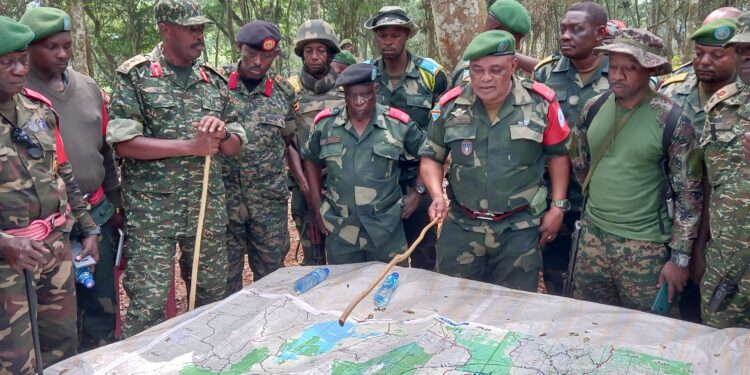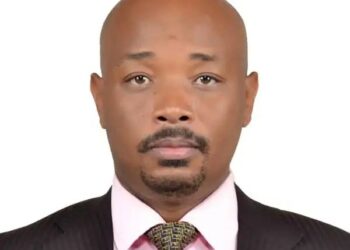The Uganda Peoples Defense Forces (UPDF) is now in eastern Democratic Republic of Congo ostensibly to fish out the Allied Democratic Forces (ADF) who have been accused of staging assassinations in Kampala and the recent wave of bombs in a campaign codenamed Suja (or Shujaa depending on who you ask).
The UPDF has been in the Congo forests before and probably it will be there again after this campaign. Last time out, our men returned with a cache of everything imaginable including barefoot pregnant women.
Unlike the previous campaigns against the ADF and all the others, the UPDF weapons went in with bulldozers and excavators to create roads where there are none for the smooth movement of troops. There is also an agreement in place with DRC to work on roads to facilitate trade. On that front, DOTT Services, a Ugandan construction company is at work to bring bitumen standard roads where there is none today.
This prompted my friend, journalist Andrew Bagala to tweet that after we have pacified eastern Congo and even built all weather highways, the beneficiaries will be Kenyan businesses. It happened in South Sudan, Rwanda and perhaps Somalia. We go in with guns, lose lives of some of our soldiers and Kenyans take over the businesses. In South Sudan and even Rwanda, Kenyan banks and other businesses quickly set up.
We have built the roads up to the Sudan boarder and efforts are underway to have the railway line to Gulu working again largely courtesy of the EU but whose goods will be transported over the lines?
Ugandan businesses especially the big ones must think beyond Uganda. We have left, for example trade to South Sudan, to small traders. Why aren’t Ugandan banks such as Centenary or DFCU in South Sudan? I know how volatile South Sudan is and how eastern DRC will be for some time but we must go in and control the economy. If Kenyan banks can survive in Juba, we can survive their too. We can’t pacify countries and return only with dependents or gold in the pockets of individuals.
Trade agreements must be signed with the countries that we are helping develop their infrastructure. I may be mistaken, but I heard of only agreements to construct roads with Congo. Are we sending in Ugandan companies to manage road tolls to get our money back?
But also which goods are we prioritizing to send to eastern DRC and how much of that is made here? A road, if we are to go by the Ugandan example, takes on average three years to complete after the commencement of construction (about six years if you add in procurement and design). So in three years when the roads are done, what shall we be exporting?
This calls for a study on what opportunities DRC presents and then set up factories and other facilities in areas like Kasese to service that market. In three years, a factory should be in place and operational making those goods with a ready market in Congo. We already have some areas in Kasese marked as industrial parks. Are they making goods that the Congolese need?
Those in logistics, do they have the necessary vehicles to take goods to DRC? Specialized vehicles may be needed because the Uganda government roads may not reach the last mile where the customers are.
Many of Ugandan traders and what they will be transporting over these roads will be made in China, thereby depriving our youth of jobs. If young people don’t have decent jobs with regular predictable incomes, they will easily be radicalized, ending up strapping their chests with bombs. Factories are some of the easiest ways to create jobs for young people. We already have a lot of people who are easily trainable having attained some bit of education. On job training of the routine work that is performed in factories is something that isn’t too difficult to do.
Businesses must also set themselves up for Congo, a market of almost 90 million people. Our corrupt people, since, they have been urged to invest here instead of abroad should look beyond apartments and lately hotels and go into factories. Firstly, they will make more money in factories, secondly, they will be able to clean up their money given the cashflow in factories and convince the gullible that they made it through hard work.
Anyway, beyond strategies to annihilate the ADF, a business plan is needed on how we can benefit from our latest military adventure in DRC.
The writer is a communication and visibility consultant. djjuuko@gmail.com
Do you have a story in your community or an opinion to share with us: Email us at editorial@watchdoguganda.com













